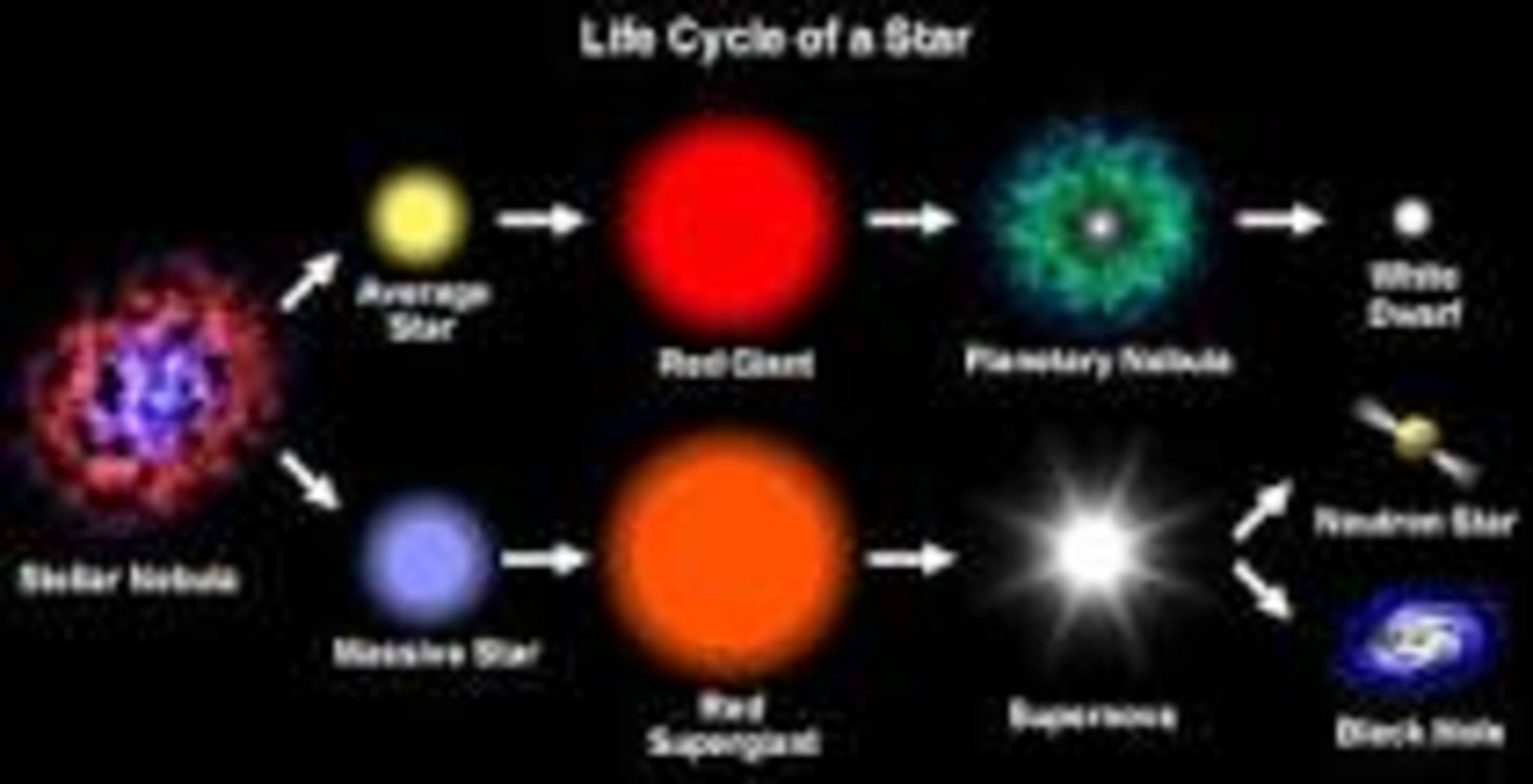What is the last stage of a star that has more mass than our Sun?

This section requires Javascript.
You are seeing this because something didn't load right. We suggest you, (a) try
refreshing the page, (b) enabling javascript if it is disabled on your browser and,
finally, (c)
loading the
non-javascript version of this page
. We're sorry about the hassle.
2 solutions
If a star has mass M < 8 M S u n , it ultimately becomes a white dwarf. But if M > 8 M S u n , then it becomes a supergiant, which goes supernova. Then at that point, if the core of the supergiant is M < 3 M S u n , the core implodes into a neutron star. Otherwise, if the core of the supergiant is M > 3 M S u n , the core implodes into a black hole.
Okay. I apologize if i got it incorrectly. I will try to fix the problem. But thanks for reporting the error.
Log in to reply
You did not necessarily get the problem wrong. But, try specifying the mass range in which a star will become a black hole.
Look at the picture given. If stars with the mass of our Sun will end its life in a planetary nebula then a white dwarf, then what is the death of a star with more mass than our Sun?
Uhhh... What mass range. Because a star with 0.000003% mere mass than the sun will still end the same way as the sun. A red dwarf. You might want to change that.